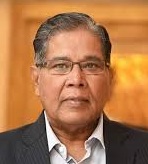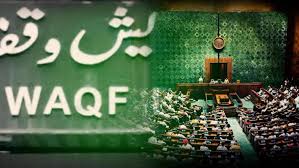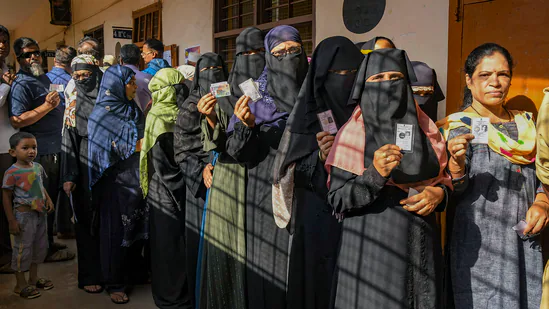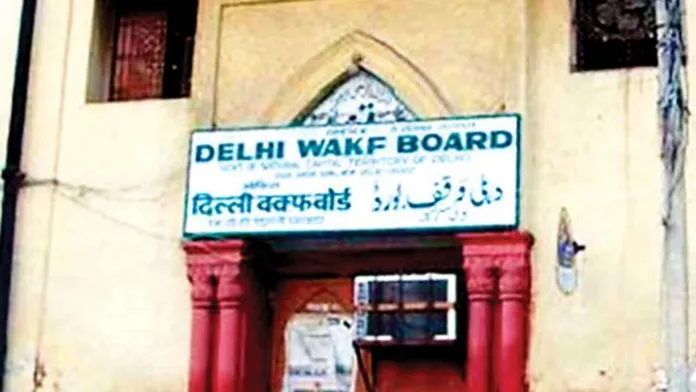RS ex-dy chairman Rahman Khan urges MPs to reject Waqf Amendment Bill
K Rahman Khan claimed the bill, introduced by Minority Affairs Minister Kiren Rijiju in Lok Sabha on 8 August, blatantly reflects prejudice
-
Representative Picture
Former Union Minister of Minority
Affairs and ex-Deputy Chairman of the Rajya Sabha, K Rahman Khan, voiced strong
opposition to the Waqf Amendment Bill, which is currently under scrutiny by a
Joint Parliamentary Committee (JPC). In a letter addressed to the Committee,
Khan urged MPs to reject the proposed legislation, which aims to overhaul the
Waqf Act of 1995. Khan claims the bill, introduced by Minority Affairs Minister
Kiren Rijiju in Lok Sabha on 8 August, blatantly reflects prejudice. Khan headed
two JPCs.
Here is the letter:
The Waqf Amendment Bill, 2024: A
Critique of Prejudice and iii-Will
In my long tenure of 24 years in
Parliament, during which I had the privilege to serve as the Deputy Chairman of
the Rajya Sabha for eight years, I have witnessed the
introduction of numerous
legislative measures aimed
at improving governance, advancing
social justice, and fostering
economic progress. However, I must
express my deep concern and disappointment regarding the Waqf Amendment Bill, 2024. Never before have I encountered legislation
that so blatantly reflects prejudice and ill will.
The Waqf Amendment Bill, as
presented, appears to be a deviation from the spirit of fairness and
constitutional values that guide our law-making process. It seeks to amend
existing provisions governing Waqf properties, institutions that are
historically and culturally significant for the Muslim community.
Lack of Consultation and Due
Process
The very foundation of a successful
democracy is built on consultation, dialogue, and mutual respect for diverse
perspectives. Unfortunately, in the case of the Waqf Amendment Bill, the lack
of meaningful consultation with key stakeholders, including the Waqf Boards and
the Muslim community, is glaring. This oversight not only raises questions
about the legitimacy of the proposed changes but also points to a deeper
malaise—a disregard for the voices of the minority communities affected by
these amendments.
Disempowerinq the Waqf Boards
The amendments seem to disempower
the Waqf Boards, which have historically played a crucial role in safeguarding
and managing Waqf properties. Instead of strengthening their capacity to manage
these assets effectively, the Bill appears to curtail their autonomy.
A Call for Reconsideration
The Waqf Amendment Bill, 2024, in
its present form, not only fails to meet these standards but also risks further
alienating communities that already feel marginalized. I urge the Parliament to
engage in a more inclusive and transparent process, wherein the concerns of all
stakeholders are addressed with
sincerity and fairness.
A Flawed Justification for Unjust
Amendments
In the statement of objects and
reasons for the Waqf Amendment Bill, 2024, the government claims that the Bill
is based on the recommendations of the high-level committee chaired by Justice
Rajinder Sachar, the Joint Parliamentary
Committee on Waqf, and the Central Waqf Council. It is further asserted that the amendments proposed
in 2013, following detailed consultation with stakeholders, are insufficient,
and thus, additional amendments are
needed to address concerns relating to state Waqf Boards, the registration and survey of Wakf
properties, and the removal of encroachments, among other issues.
However, upon closer examination,
it becomes evident that the 2024 Bill does not build upon the 2013 amendments
but rather undermines the comprehensive
reforms painstakingly crafted through dialogue with all relevant stakeholders. The amendments of 2013
were the result of a wide- ranging consultation process, drawing from two
committee reports and with input from those most affected by Waqf legislation.
Violation of Constitutional Rights
The Waqf Amendment Bill, 2024, is
not only a retrograde step in terms of policy but also contravenes several key
provisions of the Constitution. By stripping the Waqf Boards of their autonomy
and eroding the safeguards for Waqf properties, the Bill is in direct violation
of Articles 14, 25, 26, and 29 of the Constitution.
Article 14: It guarantees equality
before the law, is violated by the Bill’s arbitrary concentration of power in
the hands of government-appointed officials, leaving the Waqf Boards without
any real authority or independence.
Articles 25 and 26: It protect
religious freedom and the right to manage religious affairs, are similarly
undermined. Waqf properties, which have been established through the
contributions of the Muslim community and are meant to serve charitable and
religious purposes, are being brought under state control, stripping the
community of its right to manage its own affairs
Article 29: It safeguards the
cultural and educational rights of minorities, is also at stake, as the Bill’s
provisions erode the foundations of Waqf institutions, which are not only
religious but also cultural in their significance to the Muslim community.
Undermining the Autonomy of Waqf
Boards
Perhaps the most alarming aspect of
this Bill is its blatant attempt to strip the Waqf Boards of their autonomy.
While the 2013 amendments aimed to empower the elected Waqf Boards to manage
and protect Waqf properties effectively, the 2024 Bill seeks to reverse this
progress. By converting the Waqf Boards into fully nominated bodies, the Bill
removes the element of community representation and accountability. What was
once an elected body, responsible to the people and the Waqf institutions, will
now be dominated by government nominees, with little regard for the interests
or concerns of the Muslim community.
Moreover, the Bill withdraws the
powers of the Waqf tribunals, which were established to ensure fair
adjudication of disputes relating to Waqf properties. By removing these
tribunals, the Bill leaves the fate of Waqf properties in the hands of the
district collector—an unelected bureaucrat who is often disconnected from the
specific needs and concerns of the local Waqf institutions and the community
they serve.
No Contribution From The Government
One of the most glaring ironies of
the Waqf Amendment Bill, 2024, is that the government is seeking to exert
greater control over Waqf properties— despite having made no contribution to
their creation. Waqf properties are not state assets; they are the result of
centuries of charitable endowments made by individuals from the Muslim
community for religious and social purposes. These properties have historically
been managed by the community itself, through the Wakf Boards, with the
government playing only a regulatory role.
A Deeply Prejudiced Bill
It is difficult to escape the
conclusion that the Waqf Amendment Bill, 2024, has been drafted with an intent
to undermine the Waqf system, marginalize the Muslim community, and erode their
rights over religious and charitable endowments. Whoever has drafted this
legislation has done so with a mindset
of prejudice and hostility toward the Waqf system, its properties, and the community
it serves.—Salar News
K Rahman Khan was the former Union minister of minority affairs, former deputy chairman of Rajya Sabha
Leave a Reply
Your email address will not be published. Required fields are marked *
tqlzszofv
SALAR NEWS tqlzszofv http://www.g4tem061970gex13fcdtn61rh0a6p699s.org/ <a href="http://www.g4tem061970gex13fcdtn61rh0a6p699s.org/">atqlzszofv</a> [url=http://www.g4tem061970gex13fcdtn61rh0a6p699s.org/]utqlzszofv[/url]
rsvmbcqwg
SALAR NEWS <a href="http://www.gd53pj1s3j58q33g9cw88s0bt0up35f2s.org/">arsvmbcqwg</a> rsvmbcqwg http://www.gd53pj1s3j58q33g9cw88s0bt0up35f2s.org/ [url=http://www.gd53pj1s3j58q33g9cw88s0bt0up35f2s.org/]ursvmbcqwg[/url]
poszyxlcpm
SALAR NEWS <a href="http://www.g65y0ph13g9u14q7wwqjo2c1q109sg68s.org/">aposzyxlcpm</a> [url=http://www.g65y0ph13g9u14q7wwqjo2c1q109sg68s.org/]uposzyxlcpm[/url] poszyxlcpm http://www.g65y0ph13g9u14q7wwqjo2c1q109sg68s.org/
olrkvlvbxt
SALAR NEWS olrkvlvbxt http://www.gwq980w58ua16k2bzrm08f8rm6a169s6s.org/ [url=http://www.gwq980w58ua16k2bzrm08f8rm6a169s6s.org/]uolrkvlvbxt[/url] <a href="http://www.gwq980w58ua16k2bzrm08f8rm6a169s6s.org/">aolrkvlvbxt</a>








